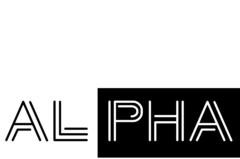Word Count: 394
Estimated Reading Time: 2-3 minutes
In an era brimming with information and diverse viewpoints, the ability to think critically is more vital than ever. Critical thinking, a learned skill, enables individuals to analyze information objectively and make reasoned judgments. This article delves into the essence of learned critical thinking, its development, the perils of its absence, and its manifold benefits.
Understanding Learned Critical Thinking
Learned critical thinking is a deliberate process of evaluating information and arguments in a disciplined way. It involves questioning assumptions, analyzing arguments, and examining evidence (Elder & Paul, 2020). Unlike innate thinking patterns, critical thinking is acquired and honed through practice and education.
Developing Critical Thinking Skills
- Questioning and Curiosity: Encouraging a habit of asking questions and seeking answers lays the foundation for critical thinking (Brookfield, 2012).
- Active Learning: Engaging in discussions, debates, and problem-solving activities sharpens analytical skills (Bean, 2011).
- Reflective Practice: Regular reflection on experiences and decisions enhances self-awareness and critical thinking (Schön, 1983).
- Educational Programs: Formal education in critical thinking, through courses or workshops, provides structured learning opportunities (Abrami et al., 2008).
Dangers of Not Thinking Critically
Lack of critical thinking can lead to several negative outcomes:
- Susceptibility to Misinformation: Without critical analysis, individuals may fall prey to false or misleading information.
- Poor Decision Making: Decisions based on unsound reasoning can have detrimental personal and professional consequences.
- Groupthink: In the absence of critical thinking, people may conform to group opinions without scrutiny, leading to flawed consensus (Janis, 1972).
Benefits of Critical Thinking
- Informed Decision Making: Critical thinkers are better equipped to make well-reasoned decisions.
- Problem-Solving Abilities: Critical thinking enhances one’s ability to solve complex problems effectively.
- Enhanced Communication: Critical thinkers can articulate their ideas and arguments more clearly.
- Lifelong Learning: Critical thinking fosters a mindset of ongoing learning and adaptability.
Real-World Examples
- Business Decisions: A study by Butler et al. (2012) showed that companies led by critical thinkers were more innovative and adaptable.
- Healthcare Choices: Critical thinking in healthcare can lead to better patient outcomes, as patients and professionals make more informed choices (Simmons, 2010).
Conclusion
Learned critical thinking is an essential skill in today’s complex world. Its development requires commitment and practice but offers immense rewards in terms of decision-making, problem-solving, and personal growth. By nurturing this skill, individuals can navigate the information-rich world more effectively and contribute positively to society.
References
- Abrami, P. C., Bernard, R. M., Borokhovski, E., Waddington, D. I., Wade, C. A., & Persson, T. (2008). Instructional interventions affecting critical thinking skills and dispositions: A stage 1 meta-analysis. Review of Educational Research, 78(4), 1102-1134.
- Bean, J. C. (2011). Engaging ideas: The professor’s guide to integrating writing, critical thinking, and active learning in the classroom. Jossey-Bass.
- Brookfield, S. D. (2012). Teaching for critical thinking: Tools and techniques to help students question their assumptions. Jossey-Bass.
- Butler, H. A., Pentoney, C., & Bong, M. P. (2012). Predicting real-world outcomes: Critical thinking ability is a better predictor of life decisions than intelligence. Thinking Skills and Creativity, 7(2), 140-150.
- Elder, L., & Paul, R. (2020). Critical thinking: The nature of critical and creative thought. Rowman & Littlefield.
- Janis, I. L. (1972). Victims of groupthink. Houghton Mifflin.
- Schön, D. A. (1983). The reflective practitioner: How professionals think in action. Basic Books.
- Simmons, B. (2010). Clinical reasoning: Concept analysis. Journal of Advanced Nursing, 66(5), 1151-1158.




